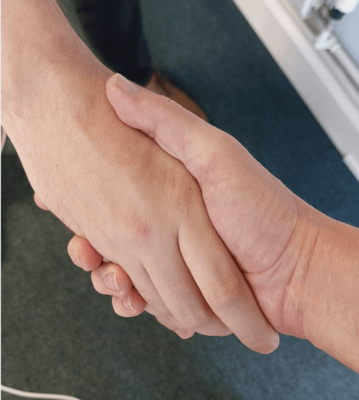I HAVE been thinking recently about the question Peter asked Jesus: “How many times do I forgive a brother or sister who hurts me? Seven?” Jesus replied: “Try seventy times seven.” (Matthew 18:21-22).
I often wonder why Peter asked this question. Maybe, he (like so many of us) was experiencing a season of feeling constantly hurt and disappointed by others. I can’t help feel a sense of ‘fed-up-ness’ in his questioning.
And yet Jesus teaches Peter the importance of what I call the rhythm of living-forgiving.
Yes, I believe we are all born for human connection and community, but there will always be those who will hurt, disappoint, crush, insult, annoy and even abandon us. In fact, none of us are guilt-free, as we too have been guilty of hurting others. But as I grow older, I have increasingly come to realise the importance of living out this practice.
Why? Because the truth about unforgiveness is that it tends to keep us chained to the very people we wish to be free from. Marianne Williamson says: “Unforgiveness is like drinking poison and waiting for the other person to die.” In other words, unforgiveness ultimately damages us.
Maybe this is why Jesus was emphasising the importance of forgiving others over and over again, as it is critical to our own freedom.
Don’t get me wrong, forgiveness does not mean that relationships always reverse back to the way things were before.
•You can forgive a person without trusting them again.
•You can forgive a person without a restored relationship.
•You can forgive a person and no longer want them in your life.
One of my favourite authors, Anne Lamott, summarises this perfectly: “Forgiveness means it finally becomes unimportant that you hit back. You’re done. It doesn’t necessarily mean that you want to have lunch with the person. If you keep hitting back, you stayed trapped in the nightmare.”
Friends, may we learn the rhythm of living-forgiving, as I truly believe nothing can weigh us down more than carrying a grudge.








